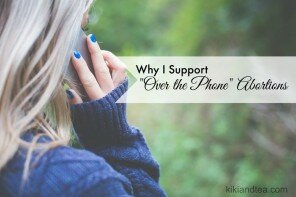Today’s guest post by Maree Talidu:

"Pain" by Maree
Many people who know me well are aware that my health is in ruins, and has been for over half my life. When people ask what is wrong with my health, I am hesitant to tell them, as I know many will respond with a lack of understanding or compassion. You can’t SEE any of my illnesses. The one that has impacted my life the most is a condition called Fibromyalgia.
This is an ‘invisible’ illness; right alongside such conditions as Lupus, CFS, Rheumatoid Arthritis or Cushing’s syndrome. It is thought to be an auto-immune condition.
Think back to the last time you had a genuine, severe bout of the flu. Did you ache all over? Was your head fuzzy? Did your head throb? Were you emotionally miserable? Could you have gone to work in that condition? I’m guessing that you wouldn’t have been able to, and yet that is what I do on a daily basis.
Being diagnosed was a difficult process, and symptoms vary for each person who suffers from Fibromyalgia.
I hurt. I ache. My muscles lock up. I get migraines, severe joint pain and extreme fatigue. My immune system is impaired and unable to fend off any virus going around. I have digestive issues. I am photo-sensitive (bright artificial light and sunlight sensitivity), which makes being outdoors quite uncomfortable. I am also noise sensitive. My sinuses are completely blocked and my speaking voice is gritty and deep due to ongoing ear/nose/throat symptoms. I bruise easily, have a low clotting factor, I experience palpitations and muscular spasms. I have poor circulation and numbness in my extremities. I grind my teeth. I do not experience refreshing sleep. My muscles atrophy.
Simple tasks like lifting a box, walking up a flight of stairs or even washing my hair have become impossible – I literally can’t lift my arms above my head due to shoulder pain.
I am unable to work full time. I have spent the last 7 years of my teaching career working part time. When I call in sick for work, I feel guilty – but there is nothing I can do about it. I do fear that people will think I’m a ‘bludger’.
In 2000, after spending 6 months on a disability pension, I decided that this was not the path for me. Ambitious as it was, I decided to become a teacher. I was only 20 years old and the prospect of staying on the disability pension absolutely destroyed me – I was intelligent, driven and I didn’t want to watch life pass me by.
 A 4-year double degree took me 5 years to complete, deferring my studies twice for surgery. But my goal was to graduate – and I did. It may be the toughest thing I have ever done, but I was driven and I did it.
A 4-year double degree took me 5 years to complete, deferring my studies twice for surgery. But my goal was to graduate – and I did. It may be the toughest thing I have ever done, but I was driven and I did it.
In the ‘Fibro’ community there is a term, ‘Fibro Fog’, which refers to cognitive impairment. I forget words. I forget how to spell. I will be writing on the whiteboard and forget what I was doing. My head feels fuzzy, sluggish and ‘foggy’. I find concentrating difficult and experience bouts of short term memory loss and attention deficit.
There are two ways to approach this condition:
1. What has Fibromyalgia taken from me?
– It has hit my social life hard. I am so blessed to have amazing friends who invite me to various functions, but I find it difficult to RSVP, as I won’t actually know how I’m going to be feeling on that day. This in turn, makes me feel like a bad friend, like they expect me to bail last minute, when in reality I would love to go out, but have no control over how my body will respond that day. I’m nearly 32, but a late night will destroy me.
– It has taken away my ability to work full time and therefore prevents me from being financially independent. I’ve moved home- not where I saw myself at 32.
– It has been a roadblock with relationships. Who wants to date someone who is in chronic pain? Someone who has gained weight from medication and an inability to exercise? Someone who struggles every single day just to get up?
But Fibro doesn’t have to control my response to it. Whilst there is no cure for Fibromyalgia, there are treatments that can assist with managing it.
2. What has Fibromyalgia GIVEN me?
– Empathy for others
– Patience
– Humility
– Strength
– Increased my faith
Why did I write this piece? May 12 is International Fibromyalgia Awareness day and I want people to understand that just because you can’t SEE my pain doesn’t stop it being any less real. I do not want pity; I want to educate society about ‘Invisible illness’ and break down the barriers.
I want you to understand, a little bit better, even though you can’t really unless you have lived this life. I want you to know I did not “choose” this, and it’s offensive to think that I did. I have actually had people tell me that my life “must be sweet ‘cause you get to rest so much.”I would give anything to be in good health. I had no say in this. But I have a say in how I respond.
 I just want to be understood. I do NOT want to be defined by my illness. It is a part of my every day life and has been since I was 15.
I just want to be understood. I do NOT want to be defined by my illness. It is a part of my every day life and has been since I was 15.
Sometimes people say “but you don’t look sick”, I wonder if Fibromyalgia was accompanied by an angry red rash that covered my body, would people treat me differently? Because I have come to rely on concealer and blush as my staple makeup items, I am able to hide my pasty, sickly pallor. I can conceal the black rings round my eyes. I can breathe life into my cheeks with a sweep of blush.
Please understand, I am still the same person I have always been. These days I tend to be more reserved, more cautious, more protective of my body. But the person within me has not changed. And when you cast aspersions of doubt over the authenticity of my condition, it is both offensive and hurtful.
Essentially, my point is this: walk a mile in my shoes before you decide, “you don’t look sick – you must be a hypochondriac or you’re just incredibly lazy.”
No, I’m not. I am strong.
Do you suffer an invisible illness? Does someone you know?
If you, or someone you know is suffering any of these symptoms, I have included a website called ‘H.O.P.E’- Healing our pain and exhaustion’ that you can view to gain a greater understanding of this condition.
To submit a guest post, email








Pingback: Is There A Link Between Creativity and Mental Illness? | KiKi & Tea()
Pingback: Illness By Any Other Name is Just As Dangerous | KiKi & Tea()
Pingback: Living with F.A.S (Failed Adult Syndrome) | KiKi & Tea()
Pingback: It’s kind of S.A.D (Seasonal Affective Disorder) | KiKi & Tea()
Pingback: What To Say (And Not) To Someone With An Invisible Illness | KiKi & Tea()
Pingback: Othering and Disability: But... I'm Not Disabled | KiKi & Tea()